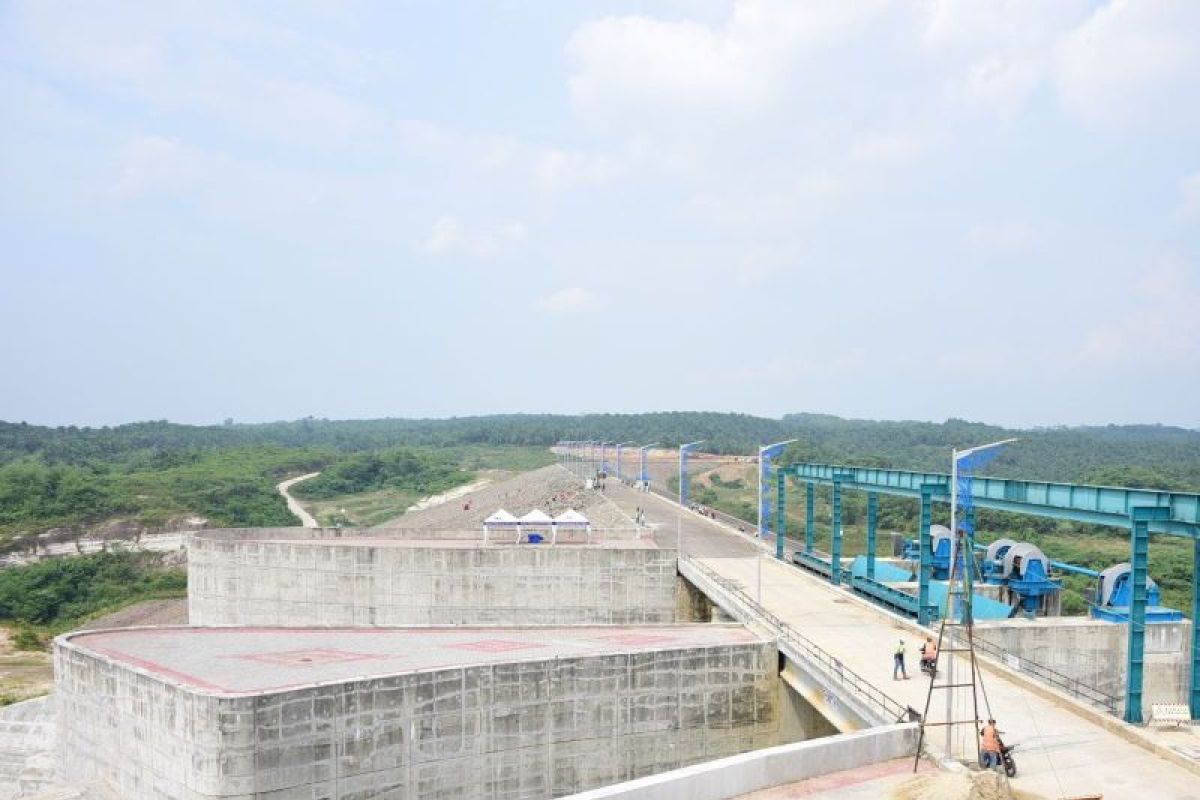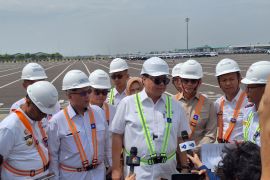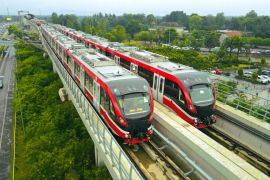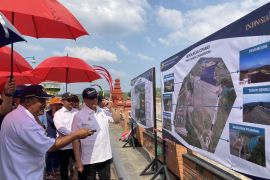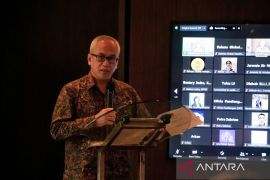This commitment is revealed in the Presidential Regulation Number 3 of 2016 concerning the Acceleration of Implementation of National Strategic Projects. This regulation stipulated 225 projects and one program in the PSN list.
However, over time, the number of projects and programs in the PSN list has changed. In the latest adjustment, there are 210 projects and 12 programs in the list that will be accelerated by the government. Their investment value is recorded at Rp5,746.4 trillion.
Changes in the number of PSNs are in line with various evaluations carried out, as well as new proposals using basic criteria and operational criteria.
The PSNs included toll road infrastructure development projects, non-toll national or national strategic road projects, intercity rail facilities and infrastructure projects, inner-city rail projects, airport revitalization projects, construction of new airports, and other strategic airport development projects.
The Coordinating Ministry for Economy Affairs noted that from 2016 to July 11, 2023, a total of 158 PSNs with a total investment value of Rp1,102.6 trillion had been completed.
With these developments, there are 25 remaining projects targeted for completion this year and 31 projects for 2024. President Jokowi had also set a target of completing all PSNs by next year.
Coordinating Minister for Economy Affairs Airlangga Hartarto, who also chairs the Committee for the Acceleration of Priority Infrastructure Provision (KPPIP), continues to push for the acceleration of PSN completion in 2024.
Despite the fact that there are PSNs that will be built after 2024, he ensures that the fulfillment of the financing (financial closing) will be completed to help the projects run according to target.
The government is committed to supporting the accelerated implementation of national strategic projects in order to maintain consistent economic growth in the future.
Therefore, various regulations have been drafted to support the accelerated completion of those strategic projects, including the Government Regulation Number 42 of 2021 concerning the Facilitation of National Strategic Projects.
There is also the Presidential Decree Number 66 of 2020 mandating the KPPIP to coordinate with the State Asset Management Institute (LMAN) to support the acceleration of the land acquisition process and other regulations as derivative regulations from Law Number 11 of 2021 concerning Job Creation.
For PSN financing, besides using the state budget, the government also collaborates with private sector to reduce the state budget’s burden.
Deputy for Public Works, Public Housing, and Infrastructure of the Indonesian Chamber of Commerce and Industry (Kadin) Insannul Kamil stated that his party will continue to support collaboration between the government and the private sector through the Public Private Partnership (PPP) scheme, as well as joint financing (crowdfunding).
The Asian Infrastructure Investment Bank (AIIB) is also one of the multilateral institutions that cooperates with the government in completing the PSNs.
From the road and bridge sector, AIIB has reportedly included one of the segments of the Trans Sumatra Toll Road project into the investment pipeline. As for other sectors, the institution has expressed interest in funding the Jakarta Light Rail Transit (LRT) project and the Waste Electrical Energy Project.
AIIB has also expressed interest in participating in infrastructure projects in the regions, as attached to the Government Regulations regarding regional development such as Presidential Regulation Number 79 of 2019, Presidential Decree Number 80 of 2019, and Presidential Decree Number 87 of 2021.
Therefore, strong cooperation and collaboration across ministries and government agencies, stakeholders, business entities, and the community function as the main key to the success of PSNs in the future.
Furthermore, Minister Hartarto conveyed that in the future, all parties have a role in realizing equal distribution of welfare, increasing economic growth, and employment in the country.
"If this work is completed, Indonesia will have the potential of gross domestic product (GDP) in 2045 worth US$7 trillion and will rank top five of the world's largest economies," he disclosed.
Long-term economic growth
Economist at the Center of Reform on Economics (Core) Indonesia Yusuf Rendy Manilet assessed that PSN tends to focus on infrastructure as an important capital for the country’s economic development, especially when measured in the medium to long term.
Thus, to see the impact of PSN on economic growth, the multiplier effects can only be seen after five years to 10 years after the PSNs running.
According to him, the impact of infrastructure development cannot be seen only during the development stage. The impact can also be seen through its effect on economic growth. Evaluation in each project is also mandatory to be carried out.
One example of a PSN that has positively affected people's lives is infrastructure development in the transportation sector which can significantly reduce logistics costs for Indonesia which consist of many islands.
There has also been a significant impact following the construction of dozens of dams within the PSN list which have succeeded in increasing raw water supply, reducing flood potential, and producing electricity.
The length of the toll road has also tripled since 2014 and the construction of three drinking water treatment systems (SPAM) under the PPP scheme was able to provide services to more than two million people.
In the dam sector, as many as 50 national strategic reservoirs have been built, increasing raw water supplies by 2.73 billion m3, reducing the flood potential by 10,300.74 m3/second, increasing raw water supply by 13,290 liters/second, irrigating 288 thousand hectares of rice fields, and produces 145 megawatts of electricity.
The Coordinating Ministry for Economy Affairs also calculated that, from 2016 to 2022, as many as 208 PSNs that have been running were able to absorb a workforce of around 11 million people, either directly or indirectly.
With these real impacts, the development of PSN which is spread across various regions can indirectly reduce the disparity in the growth of per capita income and welfare between regions. Therefore, PSN has real implications for increasing national economic growth.
Related news: Expediting construction of national projects creates equitable economy
Related news: Several ministers join fun walk to celebrate PSN's eighth anniversary
Editor: Rahmad Nasution
Copyright © ANTARA 2023
